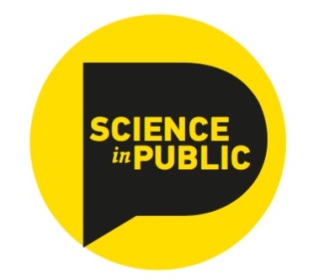Science, Technology & Humanity
11th Annual Science in Public Conference
10th-12th July 2017, University of Sheffield. #SIPsheff17
Questions? Please email SIP@sheffield.ac.uk

Registration is open – click here to book
EARLY BIRD RATES (May 1st-31st)
Conference fee: £199
Student fee: £139
Single day rate: £125
STANDARD RATES (June 1st-10th)
Conference fee: £259
Student fee: £179
Single day rate: £165
Keynote speakers:
Day 1 : Prof. Sarah Whatmore (School of Geography and the Environment, University of Oxford).
Day 2: Prof. Steven Shapin (Department of the History of Science, Harvard University)
Day 3: Prof. Dan Sarewitz (Consortium for Science, Policy and Outcomes, Arizona State University)
Call for submissions is now closed. For updates on the conference please visit the new conference website https://sipsheff17.co.uk/
CONFERENCE THEME
Science and technology are essential ingredients of our humanity. The emergence of fruitful and diverse scholarly perspectives on the history, practice, communication, governance and impacts of scientific knowledge reflects this fact. Yet rapid scientific and technological change has also unsettled the idea of what it means to be human; for example, through new frontiers in physical and cognitive enhancement, shift to knowledge economies, and potential threats to employment from mass automation. These changes take place in a context of broader challenges to expertise and evidence, dramatically illustrated by the EU referendum and the election of Donald Trump. Taking these matters seriously calls for a renewed focus on compassion, benevolence and civilization. This year at Science in Public, we ask:
How do science and technology affect what it means to be human?
We invite proposals for papers and other interventions from a wide range of disciplines – including STS, history of science, science communication, sociology, law, disability studies, geography, urban studies, development studies – that reflect on this question across a range of topics including, but not limited to:
- Law, governance and new technologies
- Responsible research and innovation
- Political economy of science and technology
- Gender, science and technology
- Science policy
- History of science and technology
- The citizen in science and technology
- Race and postcoloniality
- Dis/ability in science and technology
- Social, political and scientific imaginaries
- Science and technology in science fiction
- Science, art and humanity
- Public involvement in science and technology
- Social media as (in)humane technology
- Human enhancement
- Robotics
- Grand challenges to the future of humanity
- Geographies of science and technology
- Science and sustainability
We are delighted that Sarah Whatmore will deliver our Day 1 keynote address. Here is a snapshot of her inspiring work on local expertise in Pickering, finding innovative solutions to an apparently intractable flooding problem:
…and on Day 2, we have Steven Shapin, a world-leading historian of science over the last three decades. His new essay on the ubiquity and invisibility of science in public life is published by The Hedgehog Review and watch him below on public participation in science and the production of “useful goods”
…and on Day 3, we have Dan Sarewitz, Co-Director of the Centre for Science, Policy and Outcomes, columnist for Nature, and a pre-eminent researcher on science policy and social outcomes. Listen below to Dan discussing his 2016 essay for The New Atlantis, “Saving Science“:
